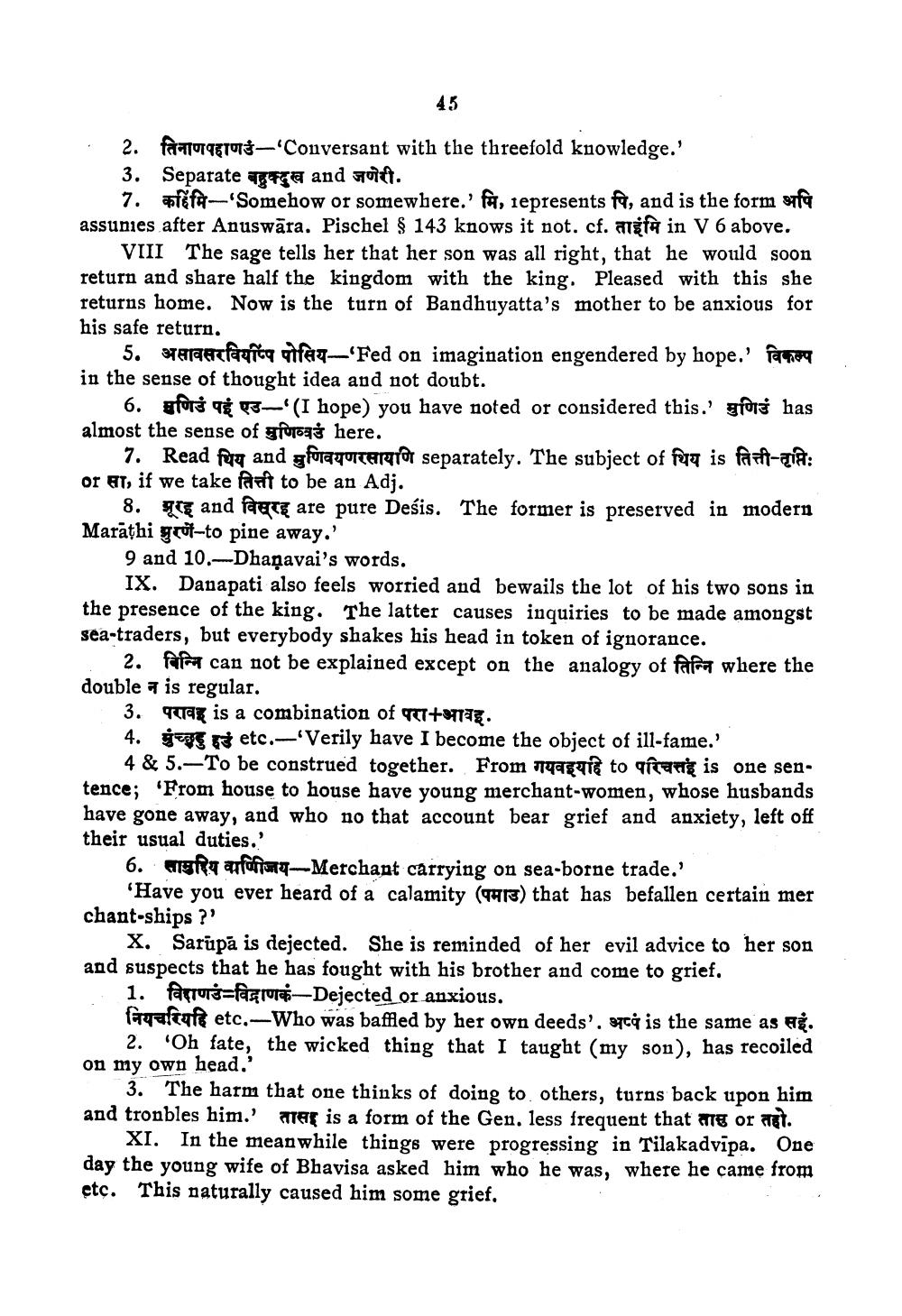________________
45
2. Faratorgetot — Conversant with the threefold knowledge.' 3. Separate बहुक्दुख and जणेरी.
7. fcfa-Somehow or somewhere.' A, iepresents fa, and is the form ofa assunies after Anuswara. Pischel $ 143 knows it not. cf. argfa in V 6 above.
VIII The sage tells her that her son was all right, that he would soon return and share half the kingdom with the king. Pleased with this she returns home. Now is the turn of Bandhuyatta's mother to be anxious for his safe return.
5. असावसरवियींप पोसिय–'Fed on imagination engendered by hope.' विकल्प in the sense of thought idea and not doubt.
6. gfors qs _'(I hope) you have noted or considered this.' fog has almost the sense of guaš here.
7. Read थिय and मुणिवयणरसायणि separately. The subject of थिय is तित्ती-तृप्तिः or ET, if we take faeft to be an Adj.
8. qoz and faere are pure Desis. The former is preserved in modern Marathi grot-to pine away.'
9 and 10.-Dhaņavai's words.
IX. Danapati also feels worried and bewails the lot of his two sons in the presence of the king. The latter causes inquiries to be made amongst sea-traders, but everybody shakes his head in token of ignorance.
2. fara can not be explained except on the analogy of fara where the double a is regular.
3. Tak is a combination of MT+97778. 4. gass etc.- Verily have I become the object of ill-fame.'
4 & 5.-To be construed together. From agurt to frees is one sentence; 'From house to house have young merchant-women, whose husbands have gone away, and who no that account bear grief and anxiety, left off their usual duties.'
6. Rogafoffay-Merchant carrying on sea-borne trade.'
'Have you ever heard of a calamity (943) that has befallen certain mer chant-ships ?'
x. Sarupā is dejected. She is reminded of her evil advice to her son and suspects that he has fought with his brother and come to grief,
1. facrorg=fagra--Dejected or anxious. Gyaltaf etc.-Who was baffled by her own deeds'. 97g is the same as .
2. "Oh fate, the wicked thing that I taught my son), has recoiled on my own head,
3. The harm that one thinks of doing to others, turas back upon him and tronbles him.' TEE is a form of the Gen. less frequent that me or Tet.
XI. In the meanwhile things were progressing in Tilakadvīpa. One day the young wife of Bhavisa asked him who he was, where he came from etc. This naturally caused him some grief,




